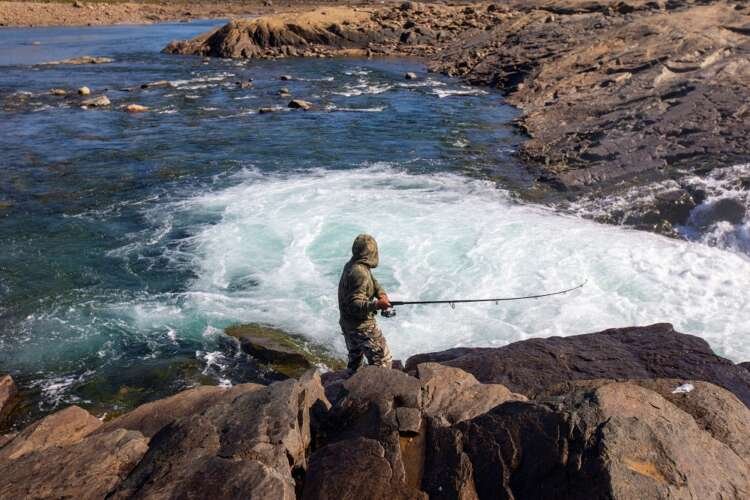In Canada’s north, environment-minded Pope to get climate change close-up


By Rod Nickel
IQALUIT, Nunavut (Reuters) – Pope Francis’s upcoming visit to Canada’s Arctic territory of Nunavut draws attention to a focal point for global climate change, with sea ice disappearing fast and permafrost thawing.
Francis, who arrives in the capital Iqaluit of predominantly indigenous Nunavut on Friday, is in Canada to apologize in person for the Roman Catholic Church’s role in abuses that residential schools inflicted on indigenous children.
The pope, who has made protection of the environment a cornerstone of his pontificate, last week called on world leaders to heed the Earth’s “chorus of cries of anguish” stemming from climate change, extreme weather and loss of biodiversity.
“Talking about climate change and the north — ground zero is a good way to put it,” said Brian Burke, executive director of the Nunavut Fisheries Association. “Any profile he can bring to it (would help) in terms of the needs we have of investment and science and being able to adapt.”
Northern Canada has warmed at nearly three times the global average, rising 2.3 degrees Celsius from 1948 to 2016, according to a Canadian government report.
The pope might address climate change in Iqaluit, given the region is particularly vulnerable, said Vatican spokesman Matteo Bruni.
Climate change has affected Nunavut’s fisheries industry, which mainly catches turbot and shrimp for export to Asia, both for better and worse.
The offshore fishing season has grown by six to eight weeks over the past decade due to less ice cover, said Burke, whose non-profit organization represents four Inuit companies that hold Nunavut fishing quotas.
The longer season has helped fishers fill their quotas, but more frequent storms have resulted in more days in-season when they can’t fish, Burke said. Meanwhile, hunting and fishing closer to shore has suffered because winter ice roads are less reliable, limiting fishers’ ability to get around.
The spring hunt for young seals, a delicacy in Nunavut, has become more difficult, said Jack Anawak, a hunter and former member of parliament.
Ice near Naujaat, where Anawak hunts, retreats earlier most springs than it did a decade ago, and returns later in fall. With less access to ice, hunters have fewer opportunities to ride snowmobiles to holes in the ice where they can hunt seal, he said.
“Climate change is really occurring very fast,” he said.
Satellite data shows that Arctic sea ice coverage has decreased each decade since 1978, when data first became available, according to the territorial government’s Nunavut Climate Change Centre.
On land, thawing permafrost – a ground layer that remains frozen – threatens to damage infrastructure such as roads, building foundations and runways, a June 2022 report by the Canadian Climate Institute said.
In Iqaluit, water and sewer pipes are cracking more often as the permafrost thaws and makes the ground unstable, said Mayor Kenny Bell.
Reduced rain and snow has also left the city’s reservoir short of drinking water at times, he said.
The Canadian government in April agreed to spend C$214 million ($166.32 million) to build a new reservoir for Iqaluit and replace a third of its pipes.
“Precipitation levels have drastically changed,” he said. “There’s no predictability in the weather at all.”
($1 = 1.2867 Canadian dollars)
(Aadditional reporting by Philip Pullella, editing by Deepa Babington)
Climate change refers to significant changes in global temperatures and weather patterns over time, primarily caused by human activities such as burning fossil fuels, deforestation, and industrial processes.
Permafrost is a layer of permanently frozen soil found in polar regions. Its thawing due to rising temperatures can lead to infrastructure damage and release greenhouse gases.
Explore more articles in the Top Stories category











